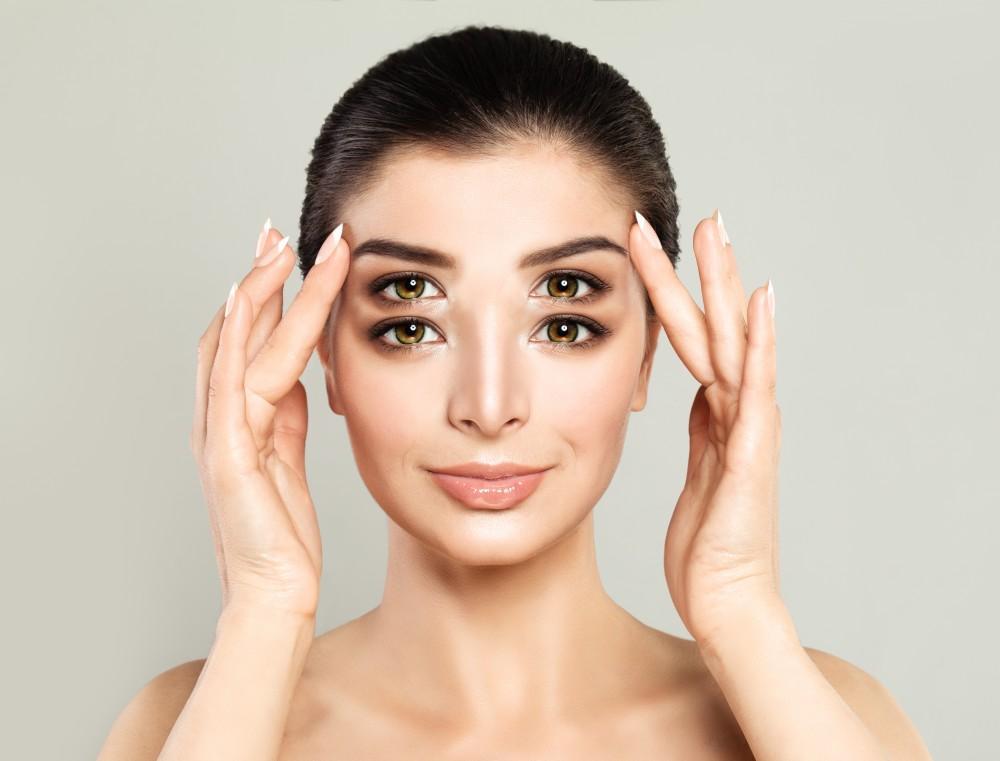
Tips for Managing Dry Eye in the Winter

Did you know that your tears aren’t just made of water? Your tears are composed of water, mucous, and fatty oils. This combination helps keep your eyes clear and protect them against irritation from debris and infection.
Your lacrimal glands supply your eyes with tears when you blink, and your tear ducts collect excess fluid. However, if the glands aren’t producing enough tears (or not the right composition of tears), you may develop dry eye syndrome.
Dry eye syndrome, or simply dry eye, affects 16 million Americans and causes stinging or scratchy sensations, blurry vision, red eyes, and increased sensitivity to light. These symptoms are bothersome at all times but particularly hard to manage in the winter months.
The good news is there are ways to manage dry eye, even when it’s cold. Below, our experts here at Maryland Eye Care Center in Silver Spring and Hyattsville, Maryland, share our top tips for managing dry eye in the winter.
Why dry eye is worse in the winter
Dry eye syndrome is exacerbated by dry air. Not only does the moisture level outside naturally drop in the winter, but your heating system contributes to dry air inside your home. The average winter temperature in Maryland is 34°F, so it’s likely you’ll have the heat on quite a bit.
Tips for managing dry eye in winter
You can’t avoid the drier air of winter, but there are strategies to soothe your eyes.
Use artificial tears
Artificial tears are eye drops that lubricate your eyes. Types include over-the-counter, prescription, and preservative-free artificial tears. Start with an over-the-counter version, but if that doesn’t provide relief, we can help you determine the right type for your needs.
Soothe your eyes
Dry eye syndrome is notorious for stinging and scratchy sensations, but warm compresses can help. These can soothe irritated eyes and help unclog your tear ducts. To make a warm compress, submerge a clean washcloth in warm water, wring it out, and place it over your eyes.
Use a humidifier
A humidifier can quickly restore moisture in the air in your home. Consider placing one in the rooms you spend considerable time in, such as your home office, bedroom, or living room.
Tip: Clean your humidifier according to the instructions to prevent mold growth, which can make allergy symptoms worse.
Wear glasses
If you wear contact lenses regularly, consider giving them a break. Eyeglasses can add another layer of protection from dry air. For example, wearing your glasses can help shield your eyes from the hot air coming from the vents in your car.
Your eyeglasses or sunglasses can also help shield your eyes from the wind, another factor that can make dry eyes worse.
Take screen breaks
Working on a computer can worsen your dry eye symptoms because you’re less likely to blink when focusing on a screen. Take a break every 20 minutes to look at something 20 feet away for 20 seconds. Known as the 20-20-20 rule, this can help prevent eye fatigue too.
Get help for dry eye syndrome
Even with these tips, sometimes it’s hard to manage dry eyes on your own. At Maryland Eye Care Center, we offer two tests for dry eye syndrome: Schirmer’s test (to assess the severity of your dry eye) and Fluorescein strips (to assess any corneal damage).
Our team is also happy to recommend Oasis TEARS® so you can get the relief you need all year round.
To learn more about Oasis TEARS or book your dry eye appointment, call the location of your choice today or schedule your visit online.
You Might Also Enjoy...


What Can Cause Double Vision?

My Vision Is Suddenly Blurry: Is This an Emergency?

5 Tips to Protect Your Vision from Digital Eye Strain

/assets/docs/442641.png)
/assets/docs/442638.png)
/assets/docs/442639.png)
